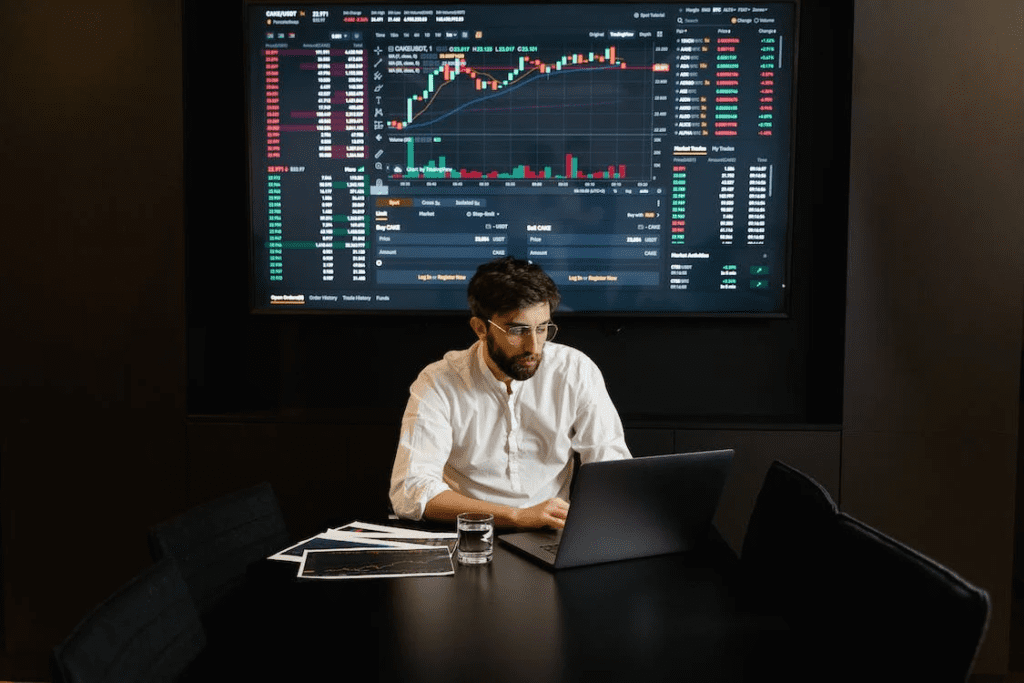In the fast-paced world of financial markets, the right tools can make all the difference between success and failure. Like this store, where every item is meticulously selected to suit the customer’s needs, a trading computer must be custom-built to meet the specific demands of trading. Within the first 100 words, it’s crucial to understand that trading computers are not just a luxury; they are a necessity for anyone serious about trading. The high stakes of trading require a system that is not only powerful but also reliable, capable of processing massive amounts of data in real-time, and tailored to the individual’s trading strategy.
The Unique Needs of Traders
Traders require much more from their computers than the average user. Real-time data processing is critical, as financial markets move at lightning speeds and traders need to make split-second decisions based on the latest information. A custom-built trading computer can be optimized for this, ensuring that data is processed and presented without delay. Multi-monitor setups are common in trading, allowing for the monitoring of various streams of data simultaneously; a trading computer can support multiple high-resolution displays seamlessly. Low latency is another critical requirement, as a delay of even milliseconds can mean the difference between profit and loss in high-frequency trading. Finally, the 24/7 nature of global markets demands a system that can operate continuously without faltering, something only a custom-built trading computer can reliably offer.
Advantages of Custom-Built Computers for Trading
Performance Optimization
For traders, every second count, making performance optimization a top priority for their computers. A custom-built trading computer allows for the selection of cutting-edge components that are specifically chosen for their performance in trading applications, such as high-speed processors and large amounts of RAM. This ensures that the system can handle multiple applications simultaneously, from trading platforms to analytical tools, without any lag. Moreover, with the right storage solutions, like SSDs, traders can enjoy quicker boot times and instant access to data.
Enhanced Reliability and Stability
When it comes to trading, downtime is not an option. A custom-built trading computer uses high-quality components known for their reliability, minimizing the risk of crashes or hardware failures during critical trading periods. Advanced cooling systems also play a vital role in maintaining stability, preventing overheating despite continuous use. This level of reliability and stability is essential for traders who rely on their systems to perform day in and day out.
Customization and Scalability
The ability to customize and scale a trading computer is invaluable. Traders can build a system that not only meets their current needs but can also be easily upgraded as their trading strategies evolve or as more demanding software becomes available. This scalability ensures that the trading computer remains a powerful tool in the trader’s arsenal, capable of adapting to new challenges without requiring a complete overhaul.
Cost-Effectiveness
While the initial investment in a custom-built trading computer might be higher than purchasing a pre-built system, the long-term benefits far outweigh the costs. By focusing on components that offer the best value for trading, traders can avoid spending on unnecessary features. Additionally, the ability to upgrade individual components over time can result in significant cost savings, as there is no need to replace the entire system to meet new requirements.
Critical Components for a Trading Computer
The heart of a trading computer lies in its components. A high-performance CPU ensures that all trading applications run smoothly, without delay. Sufficient RAM is essential for multitasking and running complex trading and analytical software without performance issues. Fast and reliable storage, provided by SSDs, allows for quick access to data and software. A robust GPU supports multiple monitors with crisp, clear visuals, which is crucial for analyzing charts and data. A reliable PSU ensures that the system has enough power, with some headroom for future upgrades, while a sophisticated cooling system keeps everything running at optimal temperatures, even under heavy loads.
Building vs. Buying: Making the Right Choice
Deciding whether to build or buy a trading computer depends on several factors, including technical expertise, budget, and specific trading needs. Building a custom system offers unparalleled control over every aspect of the computer, from its performance to its reliability and scalability. However, not everyone is comfortable assembling their system, and in such cases, a carefully selected pre-built trading computer might be a better choice. It’s essential to weigh the pros and cons, considering both immediate needs and future goals, to make the right decision.
Conclusion
In conclusion, a custom-built trading computer is more than just a tool; it’s a critical asset for any trader serious about their craft. Like selecting the perfect ingredients for a gourmet meal, every component of a trading computer must be chosen with care, ensuring that the system is perfectly tailored to meet the high demands of trading. The advantages of custom-built systems—performance optimization, reliability, customization, and cost-effectiveness—make them an invaluable investment in the trader’s journey toward success. As the trading landscape continues to evolve, the flexibility and power of a custom-built computer will remain an essential component of the trader’s arsenal, enabling them to adapt and thrive in the ever-changing market environment.
